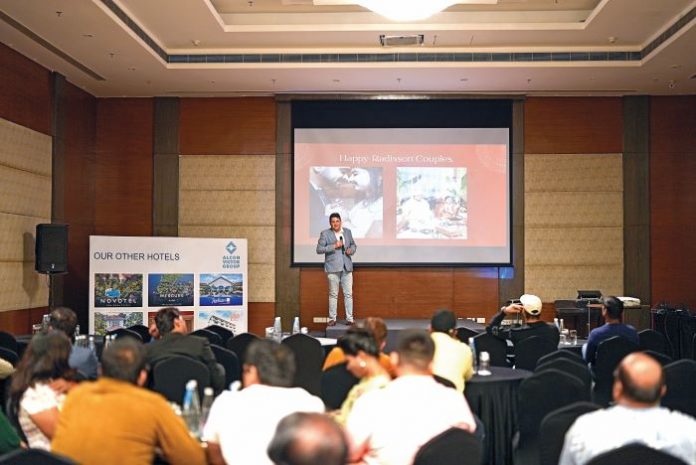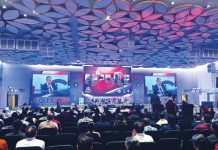Smaller cities are adapting to meet the growing demand for immersive, eco-friendly, and culturally rich tourism experiences, positioning themselves as dynamic alternatives to major metro cities.
By Charmaine Fernz
The MICE industry in India is undergoing a notable transformation, shifting its focus beyond metropolitan cities toward smaller, and non-metro cities. As companies seek unique experiences, value for money, and escapes from urban hustle, these smaller cities are becoming increasingly attractive for hosting MICE events. Birju Gariba, CEO, Iskra Events & Celebrations, highlighted the post-pandemic shift, noting the role of tourism boards in promoting new destinations. The increasing number of hotel developments and improved connectivity through air, road, and rail networks have also contributed to this shift. Tier II, and III cities offer competitive pricing and collaboration opportunities between hotels and local proprietors, making them an appealing choice for companies with limited budgets.
Emphasising that hosting events in smaller cities can be cost-effective and less congested, Mukund Karpe, Director, Sales & Marketing, Hyatt Regency Pune, Viman Nagar, pointed out that added attractions like cultural and natural sites enhance the overall experience. Manish Goyal, Founder, Stotrak Hospitality echoed similar sentiment, pointing out that local government incentives and infrastructure development are attracting more MICE events to these emerging locations. Mayur Lokhande, Assistant Food and Beverage Manager, Radisson Blu Pune Hinjawadi noted that the tranquillity of smaller cities offer a personalised experience, while Rohit Pareek, Managing Director, Earthian Hotels N Resorts highlighted the growing demand for authentic experiences. Sanjay Sharma, Founder and CEO, Eco Glamp – Kanatal saw this shift as part of a broader governmental push to develop infrastructure and promote India as a prime MICE destination. Kavita Thapa, Director, Sales, Sayaji Pune mentioned that this shift provides cost efficiencies and a refreshing change of pace for attendees of MICE events.
Sought-After Options
The growing shift away from city life in favour of more serene locations is becoming evident within the MICE sector. With major metros nearing saturation in terms of infrastructure and experience, a new wave of emerging destinations is capturing attention. These include tier II cities such as Pune, Indore, Jaipur, and Goa as key contenders that offer a blend of modern amenities, accessibility, and rich cultural heritage as per Thapa.
Sharma named more tier II cities, such as Chandigarh, Coimbatore, and Lucknow, which are showing infra growth and expanding their MICE capabilities. Pareek and Lokhande both emphasised the immersive cultural experiences these destinations offer, blending history with contemporary comforts. For instance, cities such as Udaipur and Ranthambore, provide MICE delegates with heritage-rich venues alongside breathtaking natural landscapes. The trend of tying MICE events to cultural and outdoor activities, has been seen in destinations such as Mussoorie, Rishikesh, and Coorg.
Additionally, eco-conscious tourism is in focus as well. As Karpe and Gariba suggested, emerging leisure and spiritual destinations such as Darjeeling, and Coorg will continue their growth trajectories, along with sustainable development.
The Experiential Factor
According to industry experts, these destinations offer immersive experiences that allow tourists to engage deeply with the place and its traditions. Gariba emphasised that these towns are merging their local elements with global service standards to create extraordinary experiential products.
Goyal stressed the role of preserving cultural heritage through events, workshops, and festivals, offering tourists hands-on experiences that include local traditions, architecture, and craftsmanship. Moreover, adventure activities such as hiking, kayaking, and birdwatching are contributing to the appeal as well. He also highlighted the importance of local cuisine, noting that food tourism is becoming a major draw through farm-to-table experiences, food trails, and cooking classes.
Similarly, Lokhande and Pareek expanded on the idea that tier II cities are focusing on authentic engagement. Interactive workshops, and wellness activities such as yoga retreats and organic farming experiences are becoming key attractions.
Sharma highlighted the advantage of shorter commuting times and strong community values in smaller cities, enhancing visitor’s experience. Thapa concluded by affirming that these smaller cities are carving out a unique space, offering authentic experiences to travellers.
Opting for the Better
As smaller cities are emerging as attractive venues, they have their own distinct challenges. Thapa highlighted that smaller cities often lack the infrastructure for large-scale events, such as expansive convention centers and adequate meeting spaces. However, this opens doors for creativity—planners can transform heritage properties or boutique hotels into captivating venues. Lokhande pointed out that limited air connectivity and transportation options can hinder accessibility. Goyal emphasised the challenge of scarcity in local event vendors and services. This limitation can make sourcing supplies difficult, but it also presents an opportunity for collaborationwith local businesses, planners, while supporting the community.
Karpe noted that limited infrastructure can complicate movement of logistics. However, overcoming these hurdles encourages innovative solutions. Gariba reminded us that by investing in infrastructure and fostering collaboration between state governments and private entities, smaller cities can elevate their MICE offerings. With creativity and collaboration, smaller urban areas can shine on the global stage, inviting organisations to engage and create lasting memories in unique settings.
Local government incentives are attracting more MICE events in these emerging locations
Tier II cities, such as Chandigarh, Coimbatore, and Lucknow are expanding their MICE capabilities
Trend of merging MICE events to cultural and outdoor activities, has been seen in Mussoorie, Rishikesh, and Coorg












